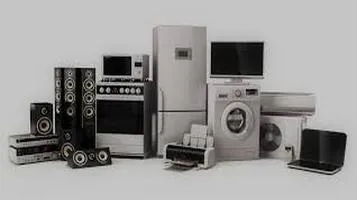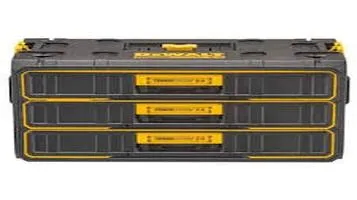Review of Energy-Efficient Appliances
Energy-efficient appliances are designed to use less electricity or water while maintaining or improving performance compared to standard models. These appliances, which include refrigerators, washing machines, dishwashers, and air conditioners, incorporate advanced technologies such as improved insulation, variable-speed motors, and smart sensors to optimize energy consumption. The use of energy-efficient appliances not only reduces utility bills but also minimizes environmental impact by lowering greenhouse gas emissions and conserving natural resources. Many of these appliances are recognized by certifications like ENERGY STAR, which helps consumers identify products that meet high energy-efficiency standards. Investing in energy-efficient appliances contributes to sustainable living by promoting energy conservation and reducing the carbon footprint of households and businesses.

In an era where sustainability has become more than just a buzzword, energy-efficient appliances are rapidly gaining traction. From refrigerators to washing machines, these modern marvels are designed to reduce energy consumption and minimize environmental impact. This review delves into the advantages and potential drawbacks of energy-efficient appliances, providing a comprehensive look at their efficacy and value.
The Advantages of Energy-Efficient Appliances
1. Environmental Impact: The most compelling advantage of energy-efficient appliances is their reduced environmental footprint. Traditional appliances consume a significant amount of energy, often derived from fossil fuels, leading to higher carbon emissions. Energy-efficient models, however, are engineered to operate using less electricity, thereby reducing the overall greenhouse gas emissions. For instance, ENERGY STAR-certified appliances are known to be up to 20-30% more efficient than non-certified models.
2. Cost Savings: One of the most immediate benefits homeowners notice is the reduction in utility bills. While energy-efficient appliances may have a higher upfront cost, the savings accrued over time can offset this initial investment. For example, an energy-efficient refrigerator might cost a few hundred dollars more than a standard model, but it can save homeowners up to $100 annually on electricity bills. Over the appliance's lifespan, these savings can be substantial.
3. Advanced Technology: Energy-efficient appliances often come equipped with the latest technology. Features such as smart thermostats, programmable settings, and advanced sensors not only enhance user convenience but also optimize energy usage. For instance, many modern washing machines automatically adjust water levels based on the load size, ensuring that no water or energy is wasted.
4. Longer Lifespan: Due to their advanced engineering and construction, energy-efficient appliances often boast a longer lifespan compared to their conventional counterparts. The reduced strain on components due to efficient operation can lead to fewer breakdowns and repairs, making them a more reliable choice in the long run.
Potential Drawbacks
1. Higher Initial Cost: The most significant barrier for many consumers is the higher upfront cost associated with energy-efficient appliances. While the long-term savings can be considerable, the initial investment may be prohibitive for some households. This can be particularly challenging for those on a tight budget or looking to replace multiple appliances simultaneously.
2. Availability and Variety: Although the market for energy-efficient appliances is expanding, it is still not as extensive as that for traditional models. Consumers may find fewer options in terms of brands, models, and features. This limited variety can be a downside for those with specific requirements or preferences.
3. Complexity and Maintenance: The advanced technology that makes energy-efficient appliances so effective can also make them more complex to operate and maintain. Some users may find it challenging to navigate the various settings and features, while others might be concerned about the potential costs of repairing high-tech components. Additionally, not all technicians may be familiar with the latest energy-efficient technologies, potentially leading to longer repair times and higher service costs.
Real-World Performance
Energy-efficient appliances have generally received positive feedback from consumers and experts alike. A study by the American Council for an Energy-Efficient Economy (ACEEE) found that households using energy-efficient appliances reported noticeable reductions in their utility bills and were satisfied with the performance and reliability of their appliances.
For instance, energy-efficient refrigerators and air conditioners are particularly praised for their ability to maintain consistent temperatures while using less power. Similarly, energy-efficient washing machines and dishwashers have been commended for their water-saving features and effective cleaning performance.
However, the real-world performance can vary depending on factors such as the appliance's make and model, the user's habits, and the overall energy efficiency of the household. Consumers are advised to conduct thorough research and read reviews to identify the most suitable models for their needs.
Conclusion
Energy-efficient appliances represent a significant step forward in the quest for sustainable living. Their ability to reduce energy consumption, lower utility bills, and minimize environmental impact makes them a worthwhile investment for eco-conscious consumers. While the higher initial cost and potential complexities may pose challenges, the long-term benefits often outweigh these concerns.
As technology continues to advance and the market for energy-efficient appliances grows, it is likely that these products will become even more accessible and affordable. For now, they remain an excellent choice for those looking to make a positive impact on the environment while enjoying the latest advancements in home appliance technology. By choosing energy-efficient appliances, consumers can contribute to a more sustainable future while reaping the rewards of modern innovation.






